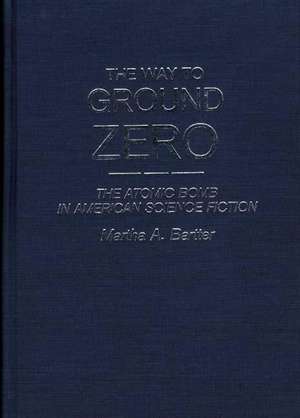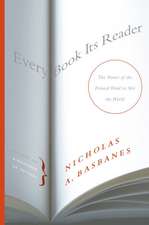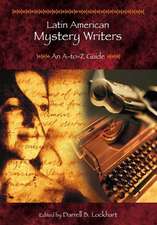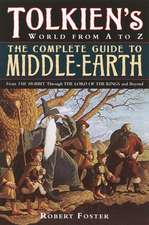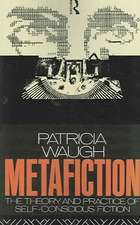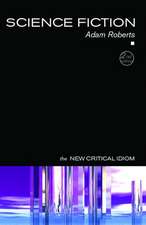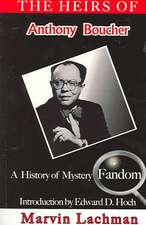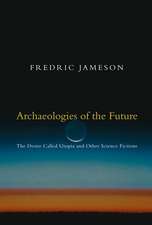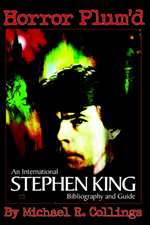The Way to Ground Zero: The Atomic Bomb in American Science Fiction: Contributions to the Study of World Literature, cartea 33
Autor Martha A. Bartteren Limba Engleză Hardback – 30 sep 1988
Bartter surveys 250 American science-fiction stories, and American SF novels--with occasional overlaps of stories made into episodic novels--that have some relationship, often direct, sometimes marginal, to atomic weapons and their effects. . . . Highly recommended for popular literature collections. "Choice"
Divided into three principal parts, "The Way to Ground Zero" begins by exploring The Way to Hiroshima. Through a detailed analysis of the works included, Bartter reveals the sociopolitical assumptions that authors took for granted and develops a method by which these assumptions can be disclosed. She shows that encoded in these fictions we can find the patterns that led us to create and use the atomic bomb. In the second section, Bartter looks at the deeper assumptions on which these sociopolitical assumptions rest, focusing particularly on those which perpetuate considerations of nuclear war--both in science fiction and in actual policy making. Finally, Bartter explores alternative assumptions proposed by innovative science fiction writers. Throughout, an attempt is made to forge a deeper understanding of the ways in which science fiction both reflects and influences human and international relations. Students of science fiction and of literature and politics will find Bartter's work enlightening, provocative reading.
Bartter argues that a close examination of American fiction, particularly science fiction, can offer important new insights into the events surrounding the bombing of Hiroshima in 1945. The use of an atomic bomb to end the war followed a scenario long established in science fiction--defeating our enemy with a super-weapon developed by native technological genius. By examining the interrelationship between this persistent plot-device and the development and use of a real super-weapon, Bartter sheds new light on the transactional role of literature and real life. Her analysis is based on a comprehensive theory of human nature, substantiated by exhaustive research in science fiction archives and libraries and covers a large number of stories--both well-known and relatively obscure--featuring super weapons or super war and published by American authors.
Din seria Contributions to the Study of World Literature
- 19%
 Preț: 462.28 lei
Preț: 462.28 lei - 38%
 Preț: 345.42 lei
Preț: 345.42 lei - 48%
 Preț: 321.02 lei
Preț: 321.02 lei - 50%
 Preț: 309.70 lei
Preț: 309.70 lei - 42%
 Preț: 251.04 lei
Preț: 251.04 lei - 28%
 Preț: 436.57 lei
Preț: 436.57 lei - 38%
 Preț: 436.47 lei
Preț: 436.47 lei - 27%
 Preț: 346.00 lei
Preț: 346.00 lei - 27%
 Preț: 438.93 lei
Preț: 438.93 lei - 38%
 Preț: 343.98 lei
Preț: 343.98 lei - 35%
 Preț: 462.28 lei
Preț: 462.28 lei - 42%
 Preț: 249.84 lei
Preț: 249.84 lei - 18%
 Preț: 354.30 lei
Preț: 354.30 lei - 55%
 Preț: 149.89 lei
Preț: 149.89 lei - 38%
 Preț: 346.00 lei
Preț: 346.00 lei - 28%
 Preț: 464.96 lei
Preț: 464.96 lei - 24%
 Preț: 463.13 lei
Preț: 463.13 lei - 51%
 Preț: 253.14 lei
Preț: 253.14 lei - 38%
 Preț: 437.75 lei
Preț: 437.75 lei - 38%
 Preț: 435.37 lei
Preț: 435.37 lei - 27%
 Preț: 439.77 lei
Preț: 439.77 lei
Preț: 439.09 lei
Preț vechi: 604.94 lei
-27% Nou
84.02€ • 87.55$ • 69.57£
Carte tipărită la comandă
Livrare economică 03-17 aprilie
Specificații
ISBN-10: 0313258929
Pagini: 290
Dimensiuni: 156 x 234 x 18 mm
Greutate: 0.59 kg
Editura: Greenwood Press
Seria Contributions to the Study of World Literature
Descriere
Divided into three principal parts, The Way to Ground Zero begins by exploring The Way to Hiroshima. Through a detailed analysis of the works included, Bartter reveals the sociopolitical assumptions that authors took for granted and develops a method by which these assumptions can be disclosed. She shows that encoded in these fictions we can find the patterns that led us to create and use the atomic bomb. In the second section, Bartter looks at the deeper assumptions on which these sociopolitical assumptions rest, focusing particularly on those which perpetuate considerations of nuclear war--both in science fiction and in actual policy making. Finally, Bartter explores alternative assumptions proposed by innovative science fiction writers. Throughout, an attempt is made to forge a deeper understanding of the ways in which science fiction both reflects and influences human and international relations. Students of science fiction and of literature and politics will find Bartter's work enlightening, provocative reading.
Bartter argues that a close examination of American fiction, particularly science fiction, can offer important new insights into the events surrounding the bombing of Hiroshima in 1945. The use of an atomic bomb to end the war followed a scenario long established in science fiction--defeating our enemy with a super-weapon developed by native technological genius. By examining the interrelationship between this persistent plot-device and the development and use of a real super-weapon, Bartter sheds new light on the transactional role of literature and real life. Her analysis is based on a comprehensive theory of human nature, substantiated by exhaustive research in science fiction archives and libraries and covers a large number of stories--both well-known and relatively obscure--featuring super weapons or super war and published by American authors.
